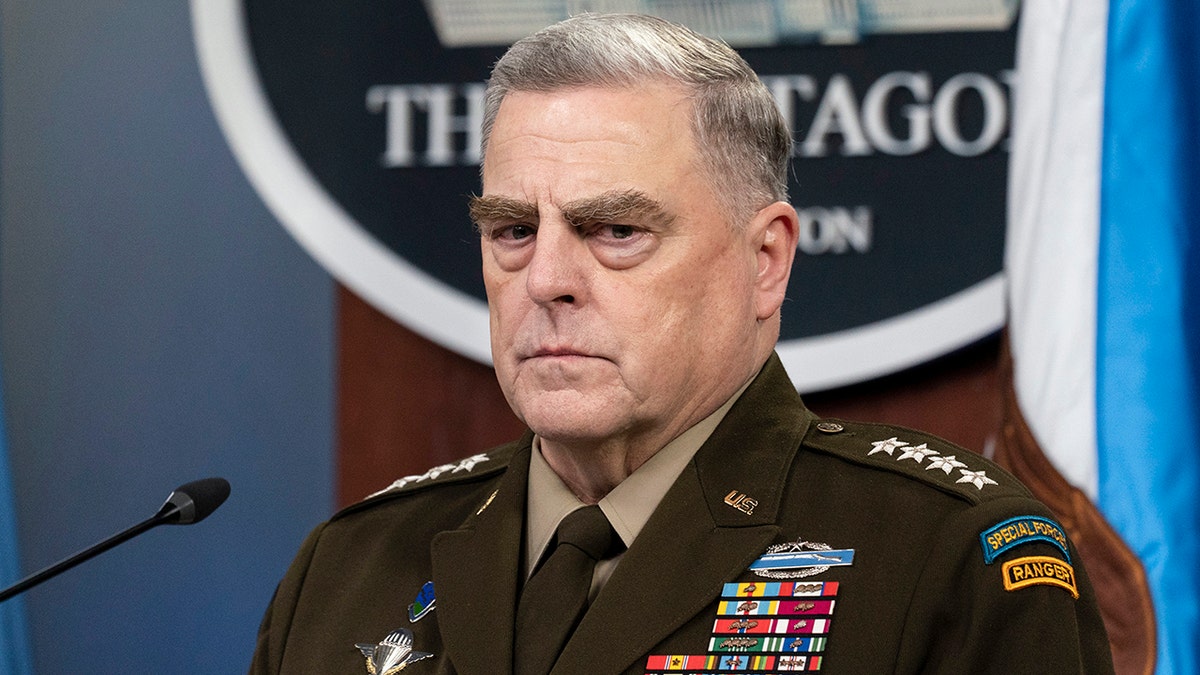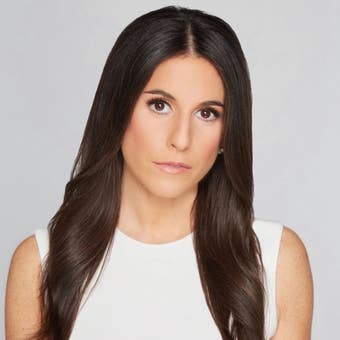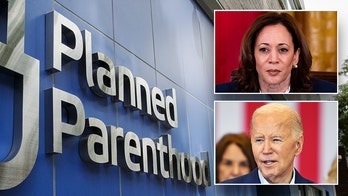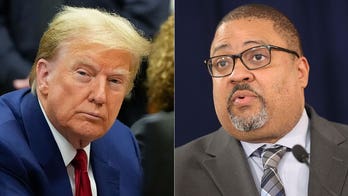US forces should not be involved in a Russia-Ukraine war: Lt. Col. Davis
Defense Priorities senior fellow discusses how to deter Putin from attacking Ukraine on 'Your World.'
Top Pentagon officials on Friday said the build-up of Russian troops along Ukraine's border is the largest since the Cold War, warning that conflict in Eastern Europe would be "horrific," but stressed that it is "not inevitable," maintaining that there is "still time and space for diplomacy," as the Kremlin continues to threaten further incursion in Ukraine.
During a briefing Friday, Defense Secretary Lloyd Austin explained that Russia has been deploying forces to Crimea and along Ukraine’s border for months, and has "progressed at a consistent and steady pace" involving tens of thousands of Russian troops.
US HANDS RUSSIA WRITTEN RESPONSE TO DEMANDS, SAYS UP TO KREMLIN HOW TO PROCEED
Austin, though, said the United States does not believe Russian President Vladimir Putin has "made a final decision to use these forces against Ukraine."

Secretary of Defense Lloyd Austin speaks during a media briefing at the Pentagon, Friday, Jan. 28, 2022, in Washington. (AP Photo/Alex Brandon)
"He clearly now has that capability and there are multiple options available to him, including the seizure of cities and significant territories, but also coercive acts of provocative political acts like the recognition of breakaway territories," Austin explained, acknowledging that the United States is focused on Russian disinformation, including the "potential creation of pretext for further invasion or strikes on Donbas."
"Any Russian attack or further incursion into Ukraine would not only ignite conflict, it would also violate the bedrock principles of national sovereignty, territorial integrity and self-determination," he said, noting that the United States is taking this "very seriously, both as a strong partner of Ukraine and as one of 30 members of NATO who are unified in opposition to Russia’s attempts to undermine those core values and threaten peace and security in Europe."
AUSTIN: ‘STILL TIME AND SPACE FOR DIPLOMACY': LIVE UPDATES
Austin said, at this point, "conflict is not inevitable."

Joint Chiefs Chairman Gen. Mark Milley listens during a media briefing at the Pentagon, Friday, Jan. 28, 2022, in Washington. (AP Photo/Alex Brandon)
"There is still time and space for diplomacy," he said. "The United States, in lockstep with our allies and partners, has offered Russia a path away from crisis and toward greater security."
Austin said the Department of Defense will "continue to support" diplomatic efforts, and maintained that the U.S. "remains committed to helping Ukraine defend itself through security assistance material."
Austin said that since 2014, the United States has committed more than $2.7 billion in security assistance to Ukraine, noting that President Biden, in December authorized an additional $200 million in assistance, which included javelins and other weapons and equipment.
"The United States will stand should to shoulder with our NATO allies and that includes reinforcing security on NATO’s eastern flank," Austin said.
Earlier this week, Austin placed 8,500 U.S. troops on heightened preparedness for deployment to the region.
"We placed thousands of U.S. troops on prepare to deploy orders earlier this week, and if NATO activated its response forces, these troops will be ready to go," Austin said Friday.
PUTIN'S UKRAINE AGGRESSION IS A ‘RED MEAT’ DISTRACTION FOR THE RUSSIAN PEOPLE, CONGRESSMAN SAYS
Austin acknowledged that the situation on Ukraine’s borders is "changing rapidly," but said Biden administration officials will continue to present the president with options to "defend our national security interest in response to Russian actions."
"An attack against one NATO member is an attack against us all," Austin said. "And as President Biden has said, the United States holds this as a acred obligation and we will do right by that commitment."
Austin added that Putin "can do the right thing as well."
RUSSIA-UKRAINE CRISIS: MOSCOW'S TOP DIPLOMAT SAYS 'WE DON'T WANT WARS': LIVE UPDATES
"There is no reason that this situation has to evolve into conflict. He can choose to deescalate. He can order his troops away. He can choose dialogue and diplomacy," Austin said. "Whatever he decides, the United States will stand with our allies and partners."
Meanwhile, Chairman of the Joint Chiefs of Staff Gen. Mark Milley addressed the situation should Russia choose to invade Ukraine, explaining that "it will not be cost free in terms of casualties or other significant effects."
"There is a small contingent of U.S. and NATO advisors and trainers currently in Ukraine," Milley explained, adding that the U.S. "has zero offensive combat weapon systems nor any permanent forces or bases in Ukraine."
"Our role is limited and that we help train, advise and assist with tactics, techniques and procedures," Milley said. "We participate in institutional development of the Ukrainian ministry of defense."
"The president and the secretary of Defense have authorized the United States military to increase our readiness in the event we have to reinforce or assist our NATO allies," Milley continued.
He added: "War is not inevitable, as the secretary said, the right answer here is a diplomatic solution."
But Milley did set the scene, telling reporters Friday that "given the type of forces that are arrayed, the ground maneuver forces, the artillery, the ballistic missiles, the air forces, all of it packaged together, if that was unleashed on Ukraine, it would be significant. Very significant."
"And it would result in a significant amount of casualties," he stressed. "And you can imagine what that might look like in dense urban areas, along roads and so on. And so it would be horrific. It would be terrible and it's not necessary."
Milley did warn, though, that there is "a potential" that Russia "could launch on very, very little warning."
"That's possible, and there's a wide scale of options that are available to Russian leadership, and the best option they should pick, in my view, is a diplomatic solution to resolve whatever differences they have," Milley said.
But Russian Foreign Minister Sergey. Lavrov told Russia radio stations Friday that "we don’t want wars," despite amassing more than 125,000 troops along Ukraine’s border.
"If it depends on Russia , then there will be no war. We don't want wars. But we also won't allow our interests to be rudely trampled, to be ignored," Lavrov said, according to Reuters.
SIX US FIGHTER JETS ARRIVE IN ESTONIA AMID UKRAINE-RUSSIA TENSIONS
Lavrov reportedly added that he expects to meet with U.S. Secretary of State Antony Blinken in the coming weeks, one day after saying that the U.S. and NATO’s responses to its security demands in relation to Ukraine offer "little ground for optimism."
Meanwhile, the State Department on Thursday unequivocally warned that if Russia invades Ukraine the Nord Stream 2 pipeline will sit unused at the bottom of the ocean. The controversial pipeline has become the U.S. and NATO’s biggest bargaining chip in its attempts to preserve Kyiv’s sovereignty.
And earlier this week, Biden administration officials told Fox News that they are also preparing "severe" sanctions against Russia should it invade Ukraine, which would have an "immediate and visible effect on the day they are implemented."
"That means the gradualism of the past is out, and this time, we will start at the top of the escalation ladder and stay there," a senior administration official said. "We've made efforts to signal this intention very clearly, and I would say, a deepening selloff in Russian markets, its borrowing costs, the value of its currency market, imply default risk, reflect the severity of the economy consequences we can and will impose on the Russian economy in the event of a further invasion."
CLICK HERE TO GET THE FOX NEWS APP
Ukraine's territory has long been in Putin's crosshairs, especially amid recent NATO considerations of potentially allowing Ukraine to join the alliance. It is one of several post-Soviet republics in the region that shifted toward an alliance with the West after the collapse of the Soviet Union.
Putin was in the Soviet KGB for many years before beginning his political career and has said the collapse of the Soviet Union was the "greatest geopolitical catastrophe" of the 20th century.
Putin also stresses Russian ethnic and cultural influences in Ukraine as reasons why it should be part of Russia. That was a significant part of the justification Russia used when it illegally annexed the Crimea region of Ukraine in 2014.








